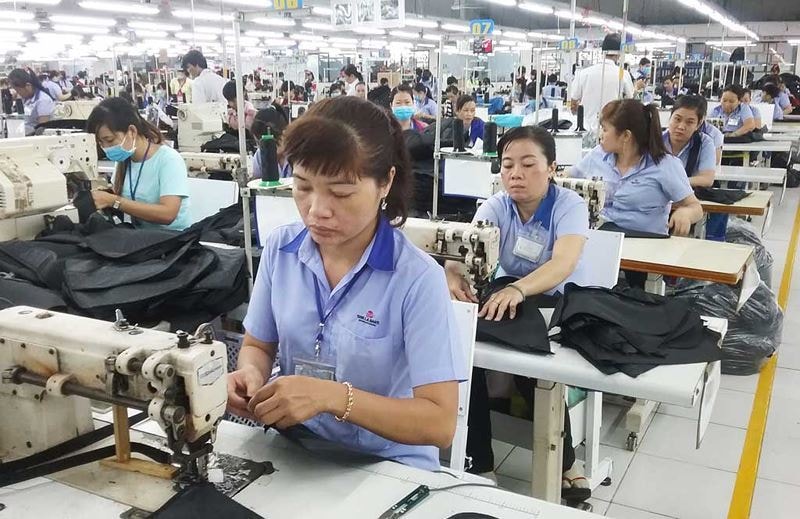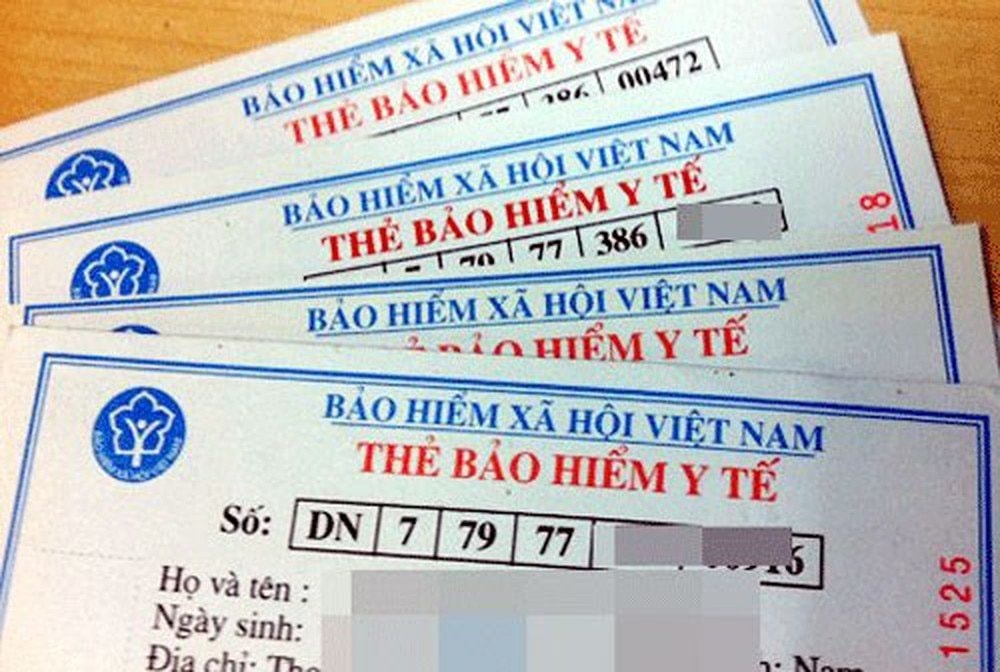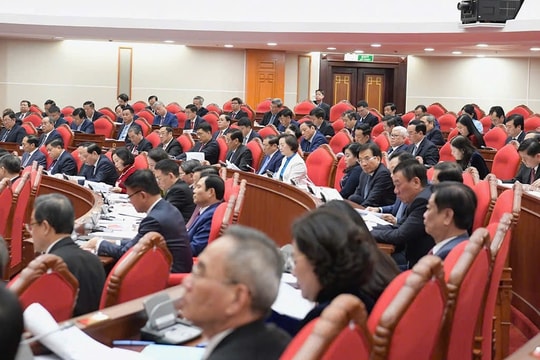New regulations on wages and health insurance take effect from December
From December 2018, many new policies related to salaries, allowances, health insurance... affecting many civil servants, teachers, and people will take effect.
New regulations on holiday pay
According to Decree 148/2018/ND-CP amending and supplementing Decree 05/2015/ND-CP, salary is the basis for paying employees on annual leave, annual leave increased by seniority, holidays, Tet and paid personal leave.
Specifically, on the above holidays, wages are calculated as follows: Wages according to the labor contract divided by the number of normal working days in the month as prescribed by the employer, multiplied by the number of days off. Previously, in Decree 05/2015/ND-CP, wages stated in the labor contract were specifically stipulated as the wages of the previous month.
Decree 148/2018/ND-CP takes effect from December 15, 2018.
Adjusting pensions for female workers
Decree 153/2018/ND-CP of the Government, effective from December 24, 2018, stipulates the pension adjustment policy for female employees who start receiving pension from 2018 to 2021 and have paid social insurance for a period of 20 years to 29 years and 6 months.
|
| Retired female workers will have a new way of calculating pensions. |
The adjustment level will be calculated by the pension level as prescribed by the Law on Social Insurance 2014 at the time of starting to receive pension multiplied by the adjustment rate corresponding to the period of social insurance payment and the time of receiving pension.
Specifically:
- If retiring in 2018, the highest adjustment rate is 12.3%; the lowest is 1.08%, depending on the time of social insurance contribution.
- If retiring in 2019, the highest adjustment rate is 9.23%, the lowest is 0.81%, depending on the time of social insurance payment….
Foreign employees must pay 8% of compulsory social insuranceThe Government has issued Decree 143/2018/ND-CP detailing the Law on Social Insurance and the Law on Occupational Safety and Hygiene on compulsory social insurance (SI) for foreign employees working in Vietnam.
Accordingly, from January 1, 2022, foreign employees will contribute 8% of their monthly salary to the pension and death benefit fund. Employees who do not work and do not receive salary for 14 days or more in a month will not pay social insurance for that month, this period will not be counted for social insurance benefits.
The Decree takes effect from December 1, 2018.
Salary arrangement guide for civil servants managing state-owned enterprises
Circular 13/2018/TT-BNV amending Clause 8, Section III of Circular 79/2005/TT-BNV is a guide to salary classification for people holding titles and positions at one-member LLCs in which the State holds 100% of charter capital and are elected, recruited, and appointed as cadres, civil servants, and public employees.
|
Accordingly, the salary scale of senior specialist or civil servant, the professional title of public employee is equivalent to senior specialist for those who have had time to be ranked in this salary scale or those who meet certain conditions. The remaining cases are ranked in the salary scale of specialist or civil servant, the professional title of public employee is equivalent to the specialist scale.
This Circular takes effect from December 5, 2018.
New regulations on preferential allowances for public school teachers
On October 25, 2018, the Ministry of Education and Training issued Circular 27/2018/TT-BGDDT amending a number of joint circulars on preferential allowances for teachers directly teaching in public educational institutions.
Specifically, teachers who are directly teaching in public educational institutions, in addition to being classified into the categories of civil servants specializing in education and training (categories with the first two digits of the category code being 15) as previously prescribed in Joint Circular 68/2011/TTLT-BGDĐT-BNV-BTC-BLĐTBXH, can also be classified into the categories of civil servants specializing in education and training (categories with the first two digits of the category code being V.07).
As for teachers on the payroll of public educational institutions who perform the duties of Team Leader, practice instructor, etc., they do not necessarily have to be classified into the education and training sector or the education and training sector.
This Circular takes effect from December 10, 2018.
Five cases are entitled to 100% of medical examination and treatment costs
This is one of the contents stated in Decree 146/2018/ND-CP effective from December 1, 2018, detailing and guiding measures to implement a number of articles of the Law on Health Insurance.
|
According to the Decree, 100% of medical examination and treatment costs are supported for 5 cases, including: 100% of medical examination and treatment costs are supported for people with revolutionary contributions; people receiving monthly social security benefits; 100% of medical examination and treatment costs are supported for people in poor households, ethnic minorities in difficult and extremely difficult areas...; 100% of medical examination and treatment costs are supported at the commune level; 100% of medical examination and treatment costs are supported for cases where the cost for one medical examination and treatment is lower than 15% of the base salary.
For other cases, health insurance benefits are only 80 - 95%.
Add more groups of subjects participating in health insurance:
Decree 146/2018/ND-CP also adds a group of subjects participating in health insurance paid by employers, including:
- Relatives of workers and defense officials serving in the Army.
- Relatives of police officers serving in the People's Public Security.
- Relatives of people working in other key organizations. Specifically, relatives of the above groups of subjects include:
- Biological father, biological mother; biological father, biological mother of wife or husband; legal guardian of oneself, of wife or husband.
- Wife or husband.
- Biological and legally adopted children from 6 to under 18 years old; biological and legally adopted children from 18 years old and above if still attending high school.
Loans for perennial crop planting are subject to principal grace period agreement
This is a notable content stated by the State Bank in Circular 25/2018/TT-NHNN amending and supplementing Circular 10/2015/TT-NHNN guiding Decree 55/2015/ND-CP on credit policies serving agricultural and rural development.
In case customers borrow to plant, care for, or replant perennial crops, the customer and the credit institution shall agree on a grace period for principal and interest in accordance with the construction stage of the perennial crops.
Accordingly, the grace period is the period from when the credit institution begins to disburse the loan until the customer begins to repay the principal and interest as agreed in the credit contract.
This Circular takes effect from December 10, 2018.











